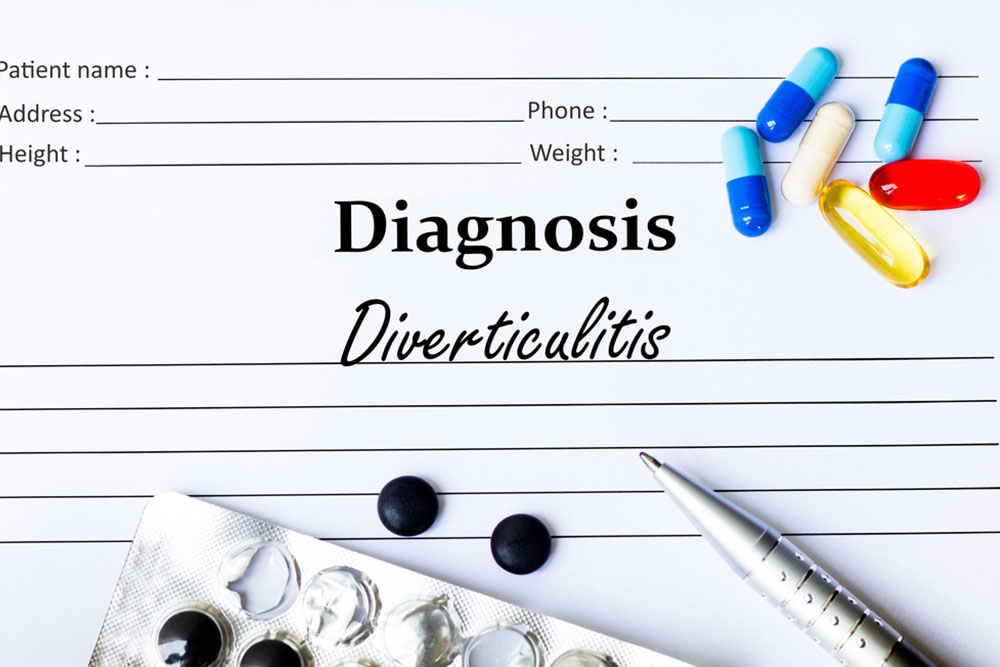Things to Know about Diverticulitis
The diverticular disease was sporadic before the 20th century but now it is quite common especially in the western countries. Diverticulitis is the most severe kind of diverticular diseases. The diverticula or pouches are formed in the intestinal wall, they are bacterially infected and inflamed and they form diverticulitis. The diverticulitis often comes with many complications. The diverticulitis treatment guidelines should be followed to combat diverticulitis; otherwise, it can lead to some serious health complications. Here are a few things related to diverticulitis.
The common symptoms of diverticulitis
There are several stages of diverticulitis. They vary from mild to severe with simple to complicated symptoms.

- Abdominal pain occurs typically in the lower left side of the abdomen
- Fever
- Nausea
- Vomiting
- The increased urge for urination, frequent urination, or feeling of a burning sensation at the time of urination
- Constipation
- Diarrhea
- Blood in stool
The causes of diverticulitis
There are multiple factors responsible for causing diverticulitis. These are:
- A low-fiber diet
The lack of dietary fiber in food is considered one of the main reasons for diverticulitis.
- Heredity
From research, it is seen that there is a link of heredity with diverticulitis. There is at least 50 percent of the potential risk of diverticulitis which comes from genetics.
- Obesity
Obesity is one of the main reasons for diverticulitis. It raises the risk of diverticulitis and its bleeding.
- Lack of physical workout
The lack of physical exercise and living a sedentary life always increase the chance of diseases like diverticulitis.
- Smoking
From studies, it is proven that smoking can cause diverticulitis and its complications.
- Certain medications
Regular intake of aspirin and other non-steroidal anti-inflammatory drugs like NSAIDs may raise the chance of diverticulitis. The opiates and steroids can increase the risk of the perforation, the severe difficulty of diverticulitis.
- The deficiency of vitamin D
From the studies, it is proven that people with less amount of vitamin D are more prone to diverticulitis and its complications.
- Gender
By the age of 50 and less, diverticulitis occurs more in men than compared to women, and for the age of 50 and above, it happens more in women than men.
The complications generated in a severe case of diverticulitis
The severe complications occur in about 25 percent of cases of diverticulitis, and these complications can be fatal sometimes. These are:
- Perforation and peritonitis
Diverticulitis sometimes can cause small perforations or holes in the diverticula, and the case turns severe as the rupture grows larger and spills the colon by creating the peritoneal or abdominal cavity. When the infection develops inside the peritoneal or abdominal cavity, it can lead to peritonitis. It can cause fever, vomiting, nausea, abdominal pain and the rigidity in the abdominal muscles.
- Abscess and phlegmon
An abscess is a kind of pus-filled infected pockets or pouches, and a phlegmon is an infected area inside the tissue. They are generally formed in the wall of the colon and cause fever, vomiting, nausea, abdominal pain, etc.
- Fistula
A fistula is a kind of connection built due to diverticulitis between two organs or the skin and organ which sometimes caused pain at the time of urination and unusual vaginal discharge etc.
- Intestinal obstruction
Intestinal obstruction or blockage can be done due to the formation of stricture, i.e., the extreme narrowing of the colon due to the swelling and scarring and as a result severe constipation, vomiting, abdominal pain, bloating, etc., occurs.
The treatment of diverticulitis
75% of cases of diverticulitis are non-complicated and it is easily treatable if it is diagnosed at the early stage and the patient follows the diverticulitis treatment guidelines accurately. The treatments include:
- Proper bed rest
Taking a lot of rest can heal the symptoms. - Temporary clear liquid diet
The doctor suggests having an only clear liquid diet for a few days so that the digestive system can get proper rest at the time of recovery. - A low-fiber diet
As your system starts to react to the treatment, the doctor may suggest starting a low-fiber diet at the time of recovery. - Medication
The doctors usually suggest the pain medicines such as acetaminophen like Tylenol to treat the discomfort. They also recommend the antibiotics, such as metronidazole like Flagyl or Flagyl ER and amoxicillin to treat the infection. - Follow-up care
The doctor suggests typically having a colonoscopy six to eight weeks after the first attack of diverticulitis; it can detect the complication of the problem. - Surgery
Complicated diverticulitis like the appearance of perforation and peritonitis, abscess, and phlegmon, fistula, intestinal obstruction, etc., can lead to life-threatening complications. Operations are very much needed to treat such complicated diverticulitis.
As we all know that ‘prevention is better than cure,’ so we can try to prevent diverticulitis by taking proper diet and maintaining a healthy lifestyle by avoiding the risk factors of diverticulitis. The diverticulitis takes about seven long years to form correctly in the human body and it comes with a lot of complications, so if any complexity occurs and it is treated at the very beginning by following the diverticulitis treatment guidelines, then we can avoid the life-threatening complications of diverticulitis and get early recovery.

